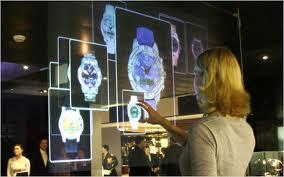Camera-based technology can be privacy-invasive, especially for bystanders who can be captured by the cameras but do not have direct control or access to the devices. The privacy threats become even more significant to bystanders with visual impairments (BVI) since they cannot visually discover the use of cameras nearby and effectively avoid being captured. While some prior research has studied visually impaired people's privacy concerns as direct users of camera-based assistive technologies, no research has explored their unique privacy perceptions and needs as bystanders. We conducted an in-depth interview study with 16 visually impaired participants to understand BVI's privacy concerns, expectations, and needs in different camera usage scenarios. A preliminary survey with 90 visually impaired respondents and 96 sighted controls was conducted to compare BVI and sighted bystanders' general attitudes towards cameras and elicit camera usage scenarios for the interview study. Our research revealed BVI's unique privacy challenges and perceptions around cameras, highlighting their needs for privacy awareness and protection. We summarized design considerations for future privacy-enhancing technologies to fulfill BVI's privacy needs.
翻译:以摄像为基础的技术可以是侵入隐私的技术,特别是对于可以被摄像头捕获但不能直接控制或接触这些装置的旁观者而言,这种隐私威胁对视觉障碍的旁观者更为重要,因为他们无法在附近看到摄像机的使用,而且实际上避免了摄像。虽然先前的一些研究已经研究视障者作为以摄像为基础的辅助技术的直接使用者的隐私关切,但没有研究他们作为旁观者的独特隐私认识和需要。我们与16名视障者进行了深入的访谈研究,以了解BVI的隐私关切、期望和不同相机使用情景的需要。对90名视障者和96名视力障碍者进行了初步调查,以比较BVI对相机的一般态度和观众对采访研究的视觉使用情景。我们的研究揭示了视障者对摄影机的独特隐私挑战和认识,强调了他们对隐私意识和保护的需要。我们总结了未来增强隐私技术的设计考虑,以满足BVI的隐私需求。




